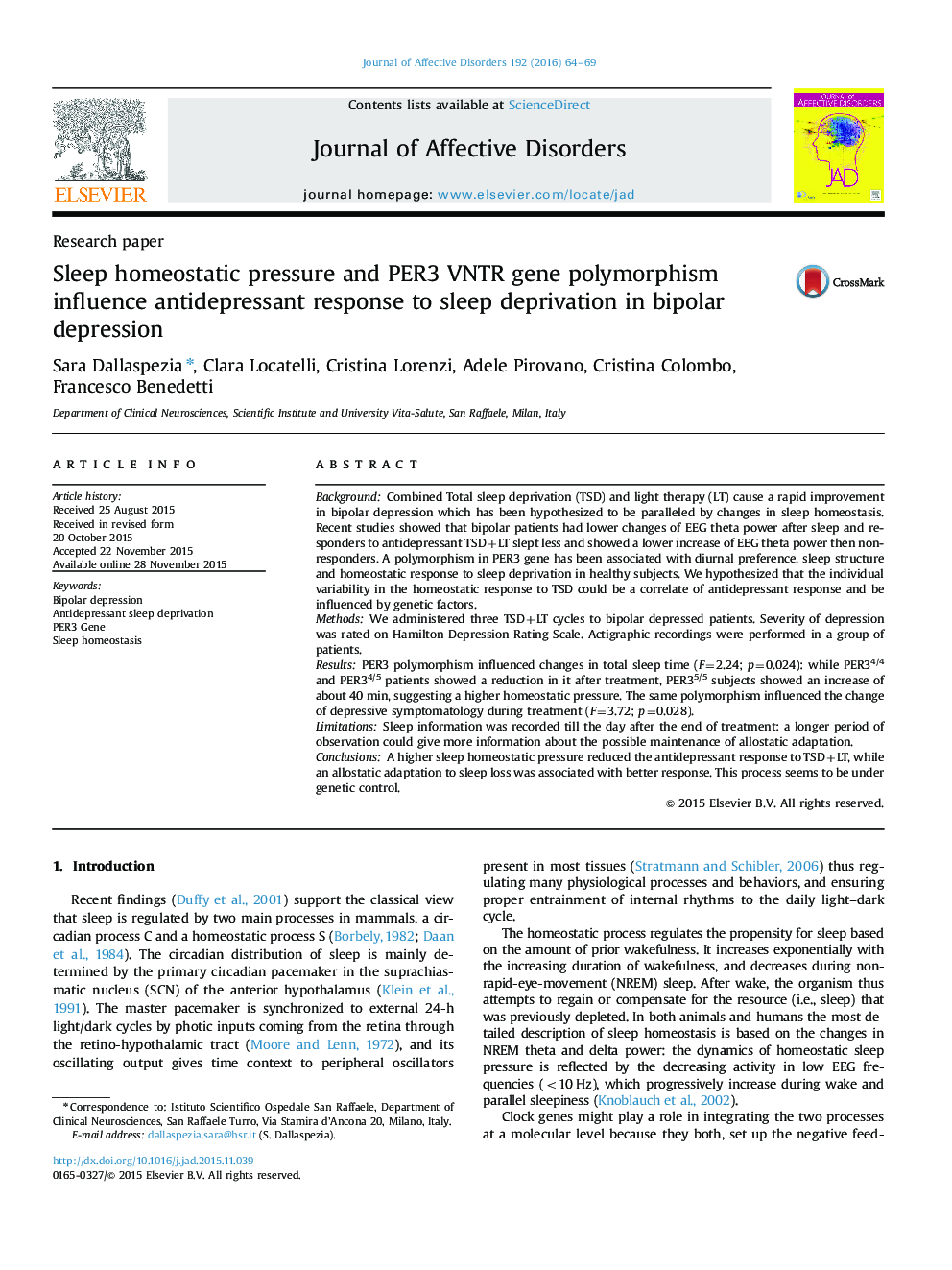| کد مقاله | کد نشریه | سال انتشار | مقاله انگلیسی | نسخه تمام متن |
|---|---|---|---|---|
| 6230597 | 1608133 | 2016 | 6 صفحه PDF | دانلود رایگان |

- Sleep deprivation and light therapy cause an improvement in bipolar depression.
- Sleep homeostatic response to chronotherapeutic correlates to antidepressant response.
- Sleep homeostatic response to chronotherapeutic seems to be under genetic control.
BackgroundCombined Total sleep deprivation (TSD) and light therapy (LT) cause a rapid improvement in bipolar depression which has been hypothesized to be paralleled by changes in sleep homeostasis. Recent studies showed that bipolar patients had lower changes of EEG theta power after sleep and responders to antidepressant TSD+LT slept less and showed a lower increase of EEG theta power then non-responders. A polymorphism in PER3 gene has been associated with diurnal preference, sleep structure and homeostatic response to sleep deprivation in healthy subjects. We hypothesized that the individual variability in the homeostatic response to TSD could be a correlate of antidepressant response and be influenced by genetic factors.MethodsWe administered three TSD+LT cycles to bipolar depressed patients. Severity of depression was rated on Hamilton Depression Rating Scale. Actigraphic recordings were performed in a group of patients.ResultsPER3 polymorphism influenced changes in total sleep time (F=2.24; p=0.024): while PER34/4 and PER34/5 patients showed a reduction in it after treatment, PER35/5 subjects showed an increase of about 40Â min, suggesting a higher homeostatic pressure. The same polymorphism influenced the change of depressive symptomatology during treatment (F=3.72; p=0.028).LimitationsSleep information was recorded till the day after the end of treatment: a longer period of observation could give more information about the possible maintenance of allostatic adaptation.ConclusionsA higher sleep homeostatic pressure reduced the antidepressant response to TSD+LT, while an allostatic adaptation to sleep loss was associated with better response. This process seems to be under genetic control.
Journal: Journal of Affective Disorders - Volume 192, 1 March 2016, Pages 64-69